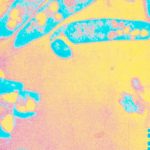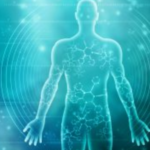Lien vers Pubmed [PMID] – 32970636
Lien DOI – 10.1172/jci.insight.140598
2020 Sep 24;140598.
Hidradenitis Suppurativa (HS) is a chronic skin disorder of unknown etiology that manifests as recurrent, painful lesions. Cutaneous dysbiosis and unresolved inflammation are hallmarks of active HS, but their origin and interplay remain unclear. Our metabolomic profiling of HS skin revealed an abnormal induction of the kynurenine pathway (KP) of tryptophan catabolism in dermal fibroblasts correlating with the release of KP-inducing cytokines by inflammatory cell infiltrates. Notably, over-activation of the KP in lesional skin was associated with local and systemic depletion in tryptophan. Yet the skin microbiota normally degrades host tryptophan into indoles regulating tissue inflammation via engagement of the Aryl Hydrocarbon Receptor (AHR). In HS skin lesions, we detected contextual defects in AHR activation coinciding with impaired production of bacteria-derived AHR agonists and decreased incidence of AHR ligand-producing bacteria in the resident flora. Dysregulation of tryptophan catabolism at the skin-microbiota interface thus provides a mechanism linking the immunological and microbiological features of HS lesions. In addition to revealing metabolic alterations in HS patients, our study suggests that correcting AHR signaling would help restore immune homeostasis in HS skin.
















